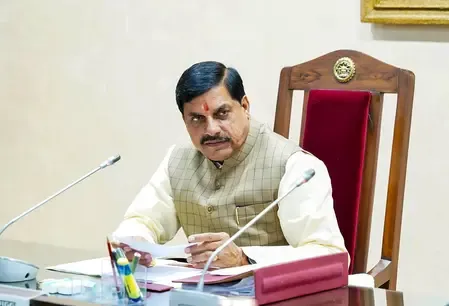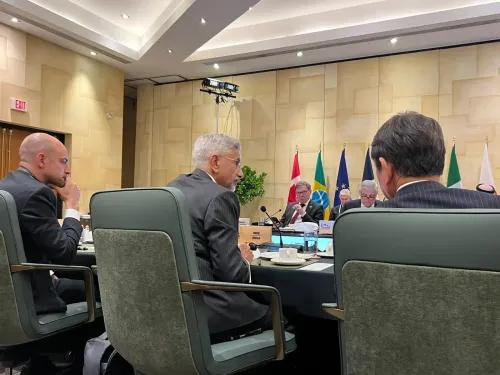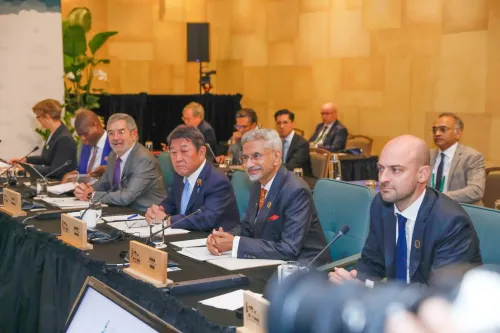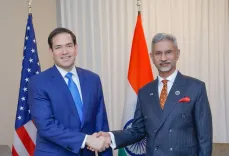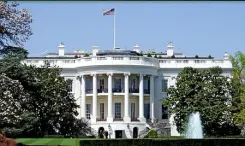Are Buyers and Sellers Thrilled with GST Reforms? Insights from Tripura CM Manik Saha
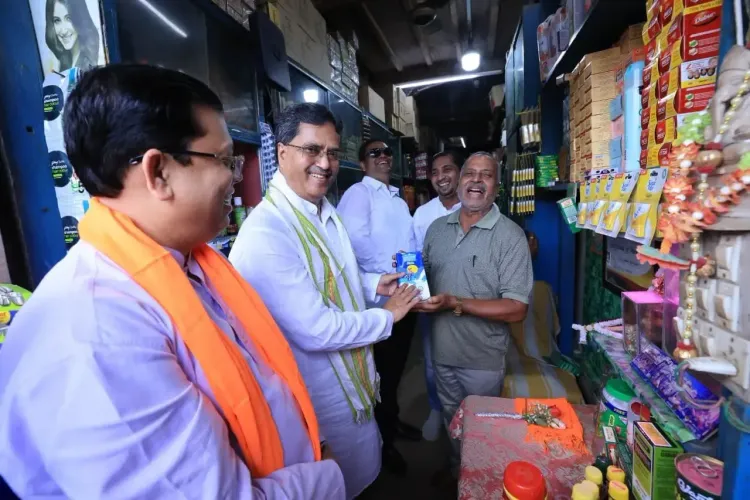
Synopsis
Key Takeaways
- GST reforms have led to reduced prices for essential goods.
- Consumers and traders express gratitude towards Prime Minister Modi.
- Tax structure simplified from five slabs to two.
- Indian economy has improved its global ranking significantly.
- The vision for a Viksit Bharat by 2047 is in focus.
Agartala, Sep 24 (NationPress) Tripura Chief Minister Manik Saha stated on Wednesday that the new GST (Goods and Services Tax) reforms have brought joy to everyone, from buyers to sellers. During a campaign at the Maharajganj market, which serves as Tripura's primary commercial center, the Chief Minister noted that citizens are expressing gratitude to Prime Minister Narendra Modi for the decrease in prices of goods, particularly essential items.
“In the future, India has the potential to emerge as a leading economy globally,” Saha remarked. He explained that the recent GST reforms were announced by Union Finance Minister Nirmala Sitharaman on the directives of Prime Minister Modi and took effect on September 22.
“Today, I visited Maharajganj market, the largest in the state, to observe the implementation of this new system. I engaged with both traders and consumers, gathering insights about their responses to the initiatives taken by the Prime Minister. The prevailing sentiment was one of happiness due to the drop in prices. Many expressed their appreciation to the Prime Minister for this,” Saha elaborated.
The Chief Minister reminisced about the complexity of the previous tax structure. “In the past, various taxes were levied when goods departed from factories, including road tax, VAT (Value Added Tax), and additional charges for interstate transportation. Although GST was implemented to consolidate these taxes, it initially caused considerable confusion,” he explained. Highlighting that the GST has now been streamlined from five slabs down to two, he noted that when Prime Minister Modi first proposed tax reforms, detractors predicted economic disaster.
“However, we have witnessed the Indian economy rise from 11th to 4th place globally. Furthermore, the Prime Minister is envisioning a Viksit Bharat by 2047, forecasting that by 2050 or beyond, India could become the world's leading economy,” he added.


